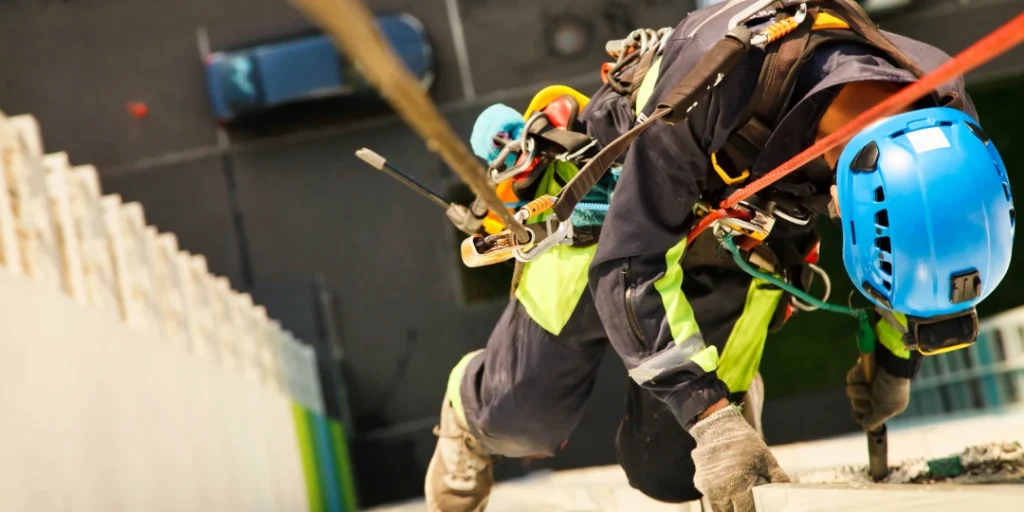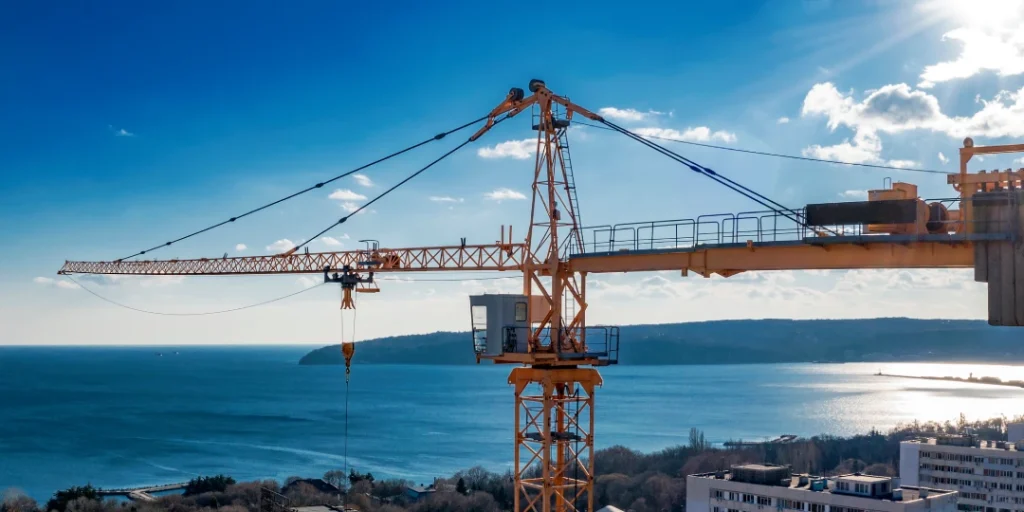Introduction: The Rising Demand for Forklift Training in Nashville
Nashville has experienced a remarkable uptick in industrial and logistical operations over the past decade. The expansion of warehousing hubs, distribution centers, and construction projects has led to an exponential demand for qualified personnel who can safely operate heavy machinery. Forklift operators, in particular, play a pivotal role in ensuring that materials are moved efficiently, inventory is managed accurately, and daily operations proceed without disruption. The need for skilled operators has never been greater, making comprehensive training programs not just advantageous—but essential.
With this surge in demand, businesses face mounting pressure to maintain safety and efficiency standards without compromising throughput. In environments where deadlines are tight and margins thin, the risk of operational error increases exponentially when workers are undertrained. Accidents involving forklifts can be devastating—both in terms of human injury and financial loss. It’s no longer sufficient to rely on outdated training manuals or ad-hoc onboarding; employers require structured, evidence-based instruction that not only teaches the mechanics of forklift operation but embeds a mindset of proactive risk management.
This evolving landscape has placed Fortier Loss Control at the forefront of industrial safety training in Nashville. Recognized for its expertise and depth of service, Fortier provides a robust solution tailored to the city’s dynamic workforce needs. Their forklift training programs go beyond rote instruction, integrating regulatory education, situational awareness, and practical simulations. As Nashville continues to grow, Fortier remains a cornerstone in preparing a new generation of operators to meet modern safety expectations with confidence and competence.
Understanding the Importance of OSHA-Compliant Training
The Occupational Safety and Health Administration (OSHA) plays a central role in regulating workplace safety across the United States. Its standards for powered industrial trucks—most notably forklifts—are explicit and non-negotiable. Employers are legally obligated to ensure that operators are adequately trained and evaluated before being authorized to handle such equipment. This isn’t simply about reducing liability; it’s about safeguarding lives in high-risk environments. OSHA-compliant training encompasses critical topics such as hazard identification, inspection protocols, and proper load distribution—all essential to preventing incidents on the job.
Failing to meet OSHA standards exposes businesses to substantial risk. Beyond the possibility of federal penalties, organizations may suffer reputational damage, workforce dissatisfaction, and operational downtime in the event of an accident. In the worst-case scenario, inadequately trained operators can cause injuries or fatalities that carry long-term implications for both the individual and the employer. These are not hypotheticals—they are real consequences witnessed across industries where training was treated as an afterthought rather than a strategic necessity.
Fortier Loss Control understands that OSHA compliance is not a mere regulatory hurdle but a foundation for workplace excellence. Their forklift training program is built to exceed federal requirements, integrating real-world scenarios and industry-specific insights. By aligning closely with OSHA’s evolving guidelines, Fortier ensures that trainees don’t just memorize rules—they internalize best practices that translate into safer, more efficient operations. This commitment to compliance and quality is one of the primary reasons why employers across Nashville trust Fortier to train their teams with rigor and integrity.
Forklift Training at Fortier Loss Control: A Trusted Name in Industrial Safety
Fortier Loss Control has established itself as a premier provider of forklift training and industrial safety solutions throughout Tennessee. Rooted in integrity, technical expertise, and a proactive educational philosophy, the company is more than a training vendor—it is a trusted strategic partner for organizations striving to build a culture of safety excellence. Their in-depth knowledge of Nashville’s industrial environment uniquely positions Fortier to address the complex challenges faced by sectors such as warehousing, logistics, and manufacturing.
What sets Fortier’s forklift training apart is their personalized, consultative approach. Before delivering instruction, they conduct thorough assessments of each client’s operational setting—evaluating facility layout, workflow dynamics, and existing safety procedures. This allows them to deliver training that is directly relevant and highly effective. By moving beyond generic content and focusing on real-world scenarios, Fortier ensures that forklift operators are equipped not just with theoretical knowledge, but with the situational awareness needed to mitigate actual risk.
The reputation Fortier has built over the years is grounded in reliability and measurable success. Their forklift training programs are valued by Nashville employers who seek more than just compliance—they want consistency, accountability, and lasting impact. Many clients engage Fortier for ongoing support, including refresher training, site-specific audits, and compliance updates. In a field where safety standards evolve and operational risks remain high, Fortier’s name has become synonymous with precision, trust, and results-driven training.

Customized Forklift Training for Diverse Industries
Industries vary dramatically in how forklifts are used, and effective training must reflect this reality. A forklift operator working in a narrow-aisle warehouse must master different spatial and load-handling skills than one moving materials across a rugged construction site. Fortier Loss Control understands these distinctions and tailors its training accordingly. Instead of providing a one-size-fits-all course, they develop industry-specific modules that prepare trainees for the precise conditions they will face on the job. This level of customization ensures relevance, which in turn fosters retention and performance.
Customization begins with consultation. Fortier’s trainers assess the client’s operational environment, including the types of forklifts in use, floor conditions, storage systems, and typical materials handled. This insight allows them to modify instructional content and exercises so that trainees are learning skills that directly apply to their roles. For example, warehouse operators may receive targeted instruction on racking safety and pedestrian awareness, while construction crews focus on terrain navigation and load stability under uneven conditions.
This tailored methodology not only enhances safety outcomes but also drives operational efficiency. Operators who receive scenario-specific training are more confident and more capable of executing their tasks without delay or incident. By acknowledging the unique demands of various sectors—such as retail logistics, food and beverage, heavy manufacturing, or construction—Fortier positions itself as a truly adaptive training provider. Their customized approach reflects a deeper commitment to helping organizations reduce risk while maximizing workforce effectiveness.
Experienced Instructors with Real-World Expertise
The value of a training program is only as strong as the instructors behind it. At Fortier Loss Control, the teaching staff comprises seasoned professionals with firsthand experience in industrial operations, safety compliance, and equipment management. These are not theoretical educators—they are former operators, safety officers, and regulatory consultants who bring a practical lens to every session. Their ability to connect textbook principles with lived experiences creates a richer, more impactful learning environment.
One of the key advantages of Fortier’s instructional team is their capacity to relate to trainees on a peer level. Many trainees find it easier to engage with instructors who have been in their shoes—who understand the pressure of moving a full load in a busy facility, or the importance of staying alert during a 10-hour shift. This rapport fosters trust and encourages more open communication during training sessions. Trainees ask more questions, absorb more knowledge, and feel more invested in the outcomes when guided by credible experts.
Moreover, Fortier’s instructors stay up to date with industry developments and evolving OSHA standards. They attend regular workshops, participate in safety forums, and continuously refine their teaching techniques. This ongoing professional development ensures that the instruction delivered is both current and authoritative. Instructors are also trained in adult learning methodologies, making them adept at balancing technical detail with engaging delivery. Whether training a single employee or an entire shift crew, they bring clarity, structure, and hands-on wisdom to every learning experience.
Hands-On Learning in a Realistic Training Environment
Forklift training must transcend the classroom to be truly effective. Operators need to experience the weight of the machine, the spatial limitations of a worksite, and the kinetic force behind a lifted load. Fortier Loss Control understands this necessity and designs its training around immersive, hands-on instruction. Their simulated environments mirror the dynamic conditions of Nashville’s industrial settings—complete with operational hazards, maneuvering challenges, and real equipment. This approach cultivates confidence, muscle memory, and situational awareness that theoretical learning alone cannot offer.
The training grounds are designed with intention—tight corners, racking systems, pedestrian crossings, and incline gradients replicate real-world scenarios. Trainees are required to navigate through obstacle courses, perform precision lifts, and respond to simulated emergencies. These controlled stress environments prepare operators to make quick, accurate decisions under pressure, which is essential in busy warehouses or fast-paced construction zones. Each drill is followed by constructive feedback, reinforcing best practices and correcting technique in real-time.
Hands-on learning also accommodates diverse learning styles. While some individuals thrive in lecture settings, many grasp concepts better through physical practice. Fortier’s tactile training model ensures that every trainee, regardless of educational background or experience level, leaves with practical skills they can deploy immediately. It transforms abstract safety principles into instinctual behavior—ensuring that when an operator encounters a real hazard, they respond with precision rather than panic. This results in fewer incidents, higher productivity, and a safer work culture overall.

Certification That Meets Regulatory and Employer Standards
At the conclusion of Fortier’s forklift training program, participants receive a certification that holds weight in both regulatory and commercial contexts. This certificate is more than a formality—it is a credential backed by a robust curriculum aligned with OSHA standards and industry benchmarks. Employers across Nashville recognize Fortier’s certification as a mark of competence, responsibility, and preparedness. It fulfills the OSHA requirement that all powered industrial truck operators be evaluated and authorized, thereby mitigating compliance risks for businesses.
What further elevates this certification is its adaptability across various industries. Whether trainees plan to work in construction, logistics, manufacturing, or retail distribution, their Fortier-issued credential is applicable and respected. This flexibility makes it a valuable asset for individuals seeking employment or career advancement in Nashville’s competitive labor market. For employers, it streamlines hiring decisions, offering a clear indication of an operator’s readiness and reliability without requiring redundant onboarding.
Fortier also maintains detailed training records, which are essential for audits, insurance evaluations, and regulatory inspections. These documents serve as a safeguard for both trainees and their employers. In the event of an incident or compliance review, companies can demonstrate due diligence by referencing verified training outcomes. This level of documentation, paired with Fortier’s rigorous instruction, provides a dual layer of protection: ensuring safety on the floor and legal peace of mind behind the scenes.
Flexible Scheduling for Businesses and Individuals
Modern businesses operate on tight timelines and unpredictable schedules. Fortier Loss Control recognizes the logistical challenge of pausing operations for training and addresses this with a highly flexible scheduling model. Whether clients need evening sessions, weekend classes, or on-site instruction during shift changes, Fortier accommodates with efficiency and professionalism. This adaptability ensures that safety training integrates seamlessly into existing workflows—without compromising production quotas or business continuity.
For individual trainees, the flexibility is equally beneficial. Many aspiring forklift operators juggle work, family, or academic responsibilities. Fortier’s course offerings are designed with accessibility in mind, making it possible for anyone to gain certification regardless of life’s demands. Options like weekend intensives and after-hours instruction cater to nontraditional schedules, while the clarity of timelines allows participants to plan their training with precision.
Companies also benefit from Fortier’s mobile training capabilities. Instead of sending employees off-site, Fortier can bring certified instructors and training materials directly to the client’s facility. This not only minimizes downtime but also enhances the learning experience by incorporating the actual equipment, layout, and operational nuances of the workplace. Training becomes contextually relevant, and team-wide participation is simplified. It’s a forward-thinking model that reflects Fortier’s commitment to practical solutions and client success.
Prioritizing Safety Culture Beyond the Classroom
Training sessions may last hours or days, but the safety culture they inspire must endure indefinitely. Fortier Loss Control’s forklift training goes beyond mechanical operation and regulatory checklists—it cultivates a mindset. Operators are encouraged to see themselves not just as equipment handlers, but as stewards of workplace safety. This cultural shift is essential in industries where a single oversight can result in life-altering injury or financial catastrophe. Fortier’s curriculum emphasizes not only what to do, but why it matters, instilling a sense of responsibility that lingers well beyond certification.
This cultural impact is reinforced through proactive communication and continued engagement. Fortier provides clients with resources, reminders, and refresher tools to ensure that training isn’t a one-time event but part of an ongoing safety dialogue. Supervisors are also educated on how to model and reinforce safe behaviors, creating alignment between leadership and the workforce. This approach helps safety become an operational norm, rather than a compliance burden. When safety is seen as a value—not a rule—employee buy-in naturally increases.
Fortier also offers follow-up assessments, on-site consultations, and post-training evaluations to support long-term adoption. These services empower companies to assess the real-world application of training and adjust protocols as needed. The emphasis on continued learning fosters adaptability in environments where change is constant—new machinery, revised layouts, or evolving OSHA standards. Through these efforts, Fortier establishes itself not just as a training vendor, but as a long-term ally in building resilient, safety-first organizations.

Frequently Asked Questions

Conclusion: Elevate Workplace Safety with Fortier’s Training Excellence
As Nashville continues to expand its industrial footprint, the demand for professionally trained, safety-conscious forklift operators will only intensify. Organizations that invest in top-tier training are not just avoiding risk—they’re building the foundation for operational excellence. Fortier Loss Control stands as a model of how comprehensive, localized training can empower workers, protect assets, and elevate company reputations. Their approach combines regulatory compliance, technical precision, and an unwavering commitment to human well-being.
From the initial consultation to post-certification support, Fortier operates with a clarity of purpose that resonates with both employers and employees. Their trainers are seasoned professionals, their curriculum is tailored and immersive, and their impact is long-lasting. Whether you’re a business looking to ensure compliance or an individual seeking a competitive edge in the job market, Fortier delivers value that extends far beyond the classroom.
In a city as vibrant and industrious as Nashville, workplace safety is not optional—it’s a competitive advantage. Fortier Loss Control helps organizations harness that advantage by producing operators who are not only licensed but truly prepared. When safety, skill, and service converge, the result is more than a trained workforce—it’s a safer, smarter, and more sustainable future for Nashville’s industrial community.



